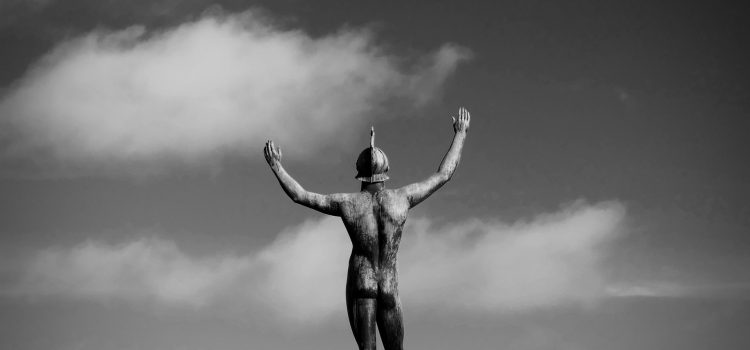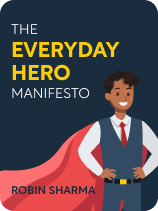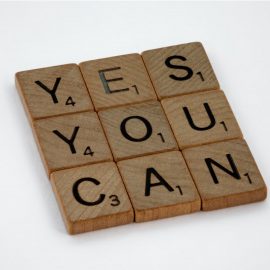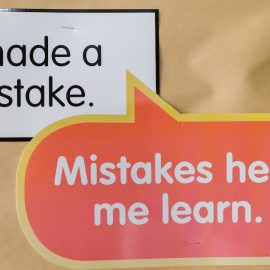

This article is an excerpt from the Shortform book guide to "The Everyday Hero Manifesto" by Robin Sharma. Shortform has the world's best summaries and analyses of books you should be reading.
Like this article? Sign up for a free trial here.
What are the best The Everyday Hero Manifesto quotes? What can you learn about being a hero from these quotes?
A hero doesn’t need laser eyes or super strength to be great. The Everyday Hero Manifesto says all you need is a strong mind, body, and heart and determination to live to your fullest potential.
Check out these The Everyday Hero Manifesto quotes to learn more.
Quotes From The Everyday Hero Manifesto
In The Everyday Hero Manifesto, Robin Sharma promises that each of us has the potential to achieve great things—we don’t need superpowers or incredible natural talents to do so. By following the system laid out in this book, you can unlock your heroic potential, realize your dreams, and become a force for good in the world.
Here are four The Everyday Hero Manifesto quotes that express Sharma’s main ideas.
“There’s no better time to become the human being you know you can be and handcraft the life of your most exuberant desires than now.”
Sharma begins by saying that everyone has the ability to be an everyday hero. For Sharma, a hero is an ordinary person who lives in an extraordinary way. You don’t need to be a genius or have any exceptional talents to be a hero in Sharma’s eyes—you simply need to fully commit to your purpose in life, exhibit positive attributes like integrity and empathy, and try to make the world a better place.
For example, a paramedic who saves lives is an everyday hero, but so is an artist whose work uplifts and inspires people. An office worker who always does his best, and who’s always ready to brighten someone else’s day with a joke or a kind gesture, could also be an everyday hero.
“Honor your scars as they have made you you.”
Sharma says that an everyday hero finds inspiration in hardship and failure; every setback is a chance to learn and a reason to improve. For example, if you were passed over for a promotion at work, that’s an opportunity to ask your boss how you can become a better employee—and to transform your disappointment into motivation to work harder.
Further, stop brooding about events that left you feeling bitter or regretful. If there’s a lesson to learn from those events, learn it, then let the memories go. Reflect on your joys and triumphs—remember the great things you’ve already done, so you’ll know that you can overcome your current struggles.
“Rather than taking from the world, make it your consistent enthusiasm to give to the world. And to behave in a way that serves all citizens.”
Sharma says an everyday hero understands that helping others is the best way to enrich your own life and find true happiness, satisfaction, and pride in who you are. Therefore, make helping others your greatest passion—in other words, use your heroic abilities to benefit others, not just yourself.
This principle goes directly against the common belief that there’s not “enough” for everyone: enough money, enough resources, enough respect, and so on. People who hold this belief try to take whatever they can, at everyone else’s expense, because they’re afraid of not having enough resources for themselves.
This selfishness is an ancient and deeply-rooted survival instinct, but it’s one that you can overcome through compassion and rational thinking. Sharma urges you to recognize that the world today is very different from how it was for our ancestors; today, there is enough for everyone to survive and be happy.
“Healing your Heartset wounds will ensure that you no longer lash out at people who did not mistreat you. And bleed on people who did not cut you.”
Past traumas often weigh heavily on your heart and stop you from bringing your full energy and enthusiasm to what you’re doing. In this section, we’ll explore two steps Sharma shares for recovering from such experiences, thereby empowering your heart.
The key to healing your heart is to admit it’s damaged: Even if you haven’t endured severe trauma, you’re still carrying old hurts, disappointments, and embarrassments, and those past events could still be affecting you. For example, if you have a painful memory of your ideas being ignored or laughed at, you may be more reluctant to share your ideas today.
The reason upsetting and traumatic experiences can affect you so strongly is that they change your brain physically. Most notably, they change the areas of the brain associated with regulating emotions and coping with fear. This means that, after you experience an upsetting or traumatic event, you could develop an irrational fear of any situation that reminds you of it. For example, if you once got stuck in a closet as a child, you might have an intense fear of small spaces not just because you’re remembering something upsetting, but because your brain is telling you that you’re in immediate danger, even if you know rationally that you’re not.

———End of Preview———
Like what you just read? Read the rest of the world's best book summary and analysis of Robin Sharma's "The Everyday Hero Manifesto" at Shortform.
Here's what you'll find in our full The Everyday Hero Manifesto summary:
- Why you don't need superpowers in order to achieve great things
- How to unlock your heroic potential and become a force for good
- Why helping others is the best way to enrich your own life






